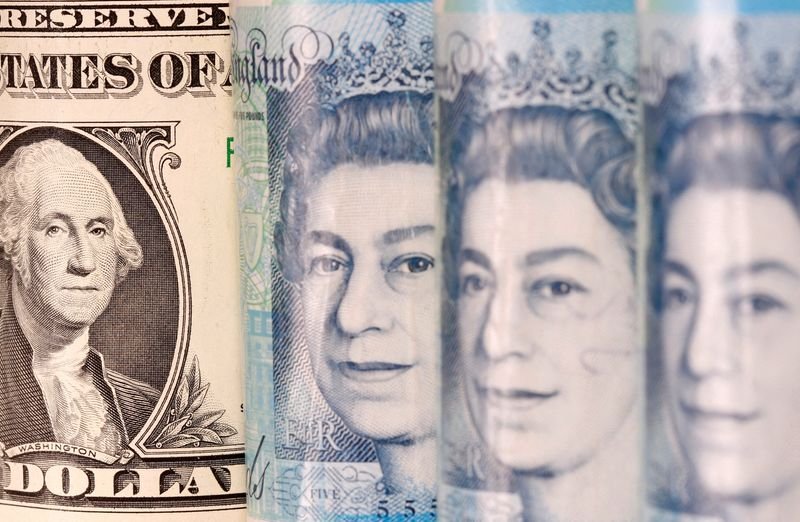- GBP/JPY makes gains after a run of positive data out of the UK, including strong PMIs.
- Upside is limited by the strength of the Yen after comments from BoJ governor Ueda.
- Japanese inflation data raises concerns inflation could be easing making it more difficult for BoJ to normalize policy.
GBP/JPY is exchanging hands in the 191.60s on Friday, marginally up on the day – its third day of gains in a row so far. The pair benefits from a stronger Pound Sterling (GBP) which has risen after the release of survey data pointed to a pick up in business activity in August.
According to a survey gauging purchasing managers in major sectors – the preliminary UK S&P Global/CIPS Composite Purchasing Manager Index (PMI) – responses were positive, clocking a rise to 53.4 in August from 52.8 in July, and beating economists’ expectations of 52.9, data showed on Thursday.
The S&P Global/CIPS Manufacturing PMI rose to 52.5 from 52.1, beating expectations it would remain unchanged. The UK Services PMI increased to 53.3 from 52.5 when a rise to 52.8 had been estimated.
The data gave GBP a lift in all its pairs and compared favorably to the more mixed picture in other major economies.
It built on the recent positive UK Retail Sales data which showed a return to growth in sales in July after a decline in June.
Not all the data out of the UK has been positive of late: government borrowing was higher than estimated in July, although how this impacts the financial markets depends partly on the government’s response over time. Consumer Confidence missed estimates in August and Factory Orders came out mixed.
Overall market expectations continue to price in a 0.25% cut by the Bank of England (BoE) before the end of 2024, with some analysts predicting a total of 0.50% of cuts (in two tranches) prior to year end. The expectation of lower interest rates are negative for a currency because they reduce foreign capital inflows, so if markets maintain their current narrative GBP is likely to remain capped.
The Japanese Yen (JPY), meanwhile, did gain some support on Friday after the Governor of the Bank of Japan (BoJ) Kazuo Ueda testified in parliament. Ueda reiterated that the BoJ “will raise interest rates further if the economy and prices move in line with our projections.” His suggestion that interest rates could rise, strengthening the Yen.
According to Brown Brothers Harriman, swaps markets “imply a 36% probability of a 25 bps BoJ rate hike by December” following Ueda’s speech.
However, markets are skeptical about the extent to which Japanese inflation will continue rising, leaving the BoJ unable to raise interest rates.
Recent data for July, for example, showed the Japanese Consumer Price Index (CPI) excluding fresh food and energy eased from 2.2% YoY in June to 1.9% in July, bringing it below the BoJ’s 2.0% target for the first time since 2022. One reason for the decline was a sharp fall in processed food inflation, whereas “other industrial products” inflation kept just above 2.0%.
Headline CPI held at 2.8% the same as June and CPI ex fresh food rose to 2.7% from 2.6% in line with economists estimates. However, these two metricsremained elevated more because of the phasing out of energy subsidies from the Japanese government, rather than increased demand – and subsidies are due to be reinstated in September.
“Headline inflation held steady at 2.8% in July, while inflation excluding fresh food edged up from 2.6% to 2.7%, in line with the analyst consensus. However, the main reason for that persistent strength was a further sharp rise in energy inflation, from 7.7% to 12.0%, which boosted headline inflation by 0.3%-pts. The surge in energy inflation largely reflects the temporary phasing out of the government’s energy subsidies, but those subsidies will be reinstated from September so energy inflation will fall again before long,” says Marcel Thieliant, Head of Asia-Pacific at Capital Economics.
Moreover, services inflation remains weak in Japan despite claims by the government that wages are rising. The CPI data showed services inflation falling to 1.4% in July from 1.7% previously.
Nevertheless despite the decline in CPI ex fresh food and energy to below the BoJ’s target, the BoJ forecast such a decline itself, and Governor Ueda did caveat his testimony that the bank would only raise interest rates if the data came out in line with its projections.
“All told, the July inflation figures clearly diminish the case for further tightening. That said, the Bank has already factored in a further slowdown in underlying inflation in its forecasts. Bank of Japan Board members’ median forecast for inflation excluding fresh food and energy for the fiscal year that ends in March 2025 is 1.9%. Given that this inflation gauge has averaged 2.2% in the first four months of the fiscal year, it will need to fall below 2% soon to meet that forecast,” adds Thieliant.







